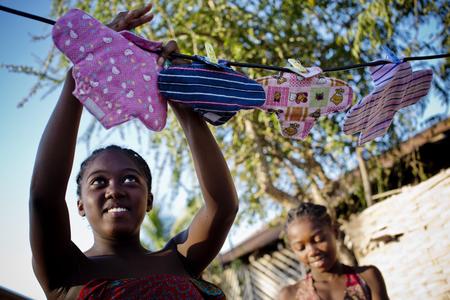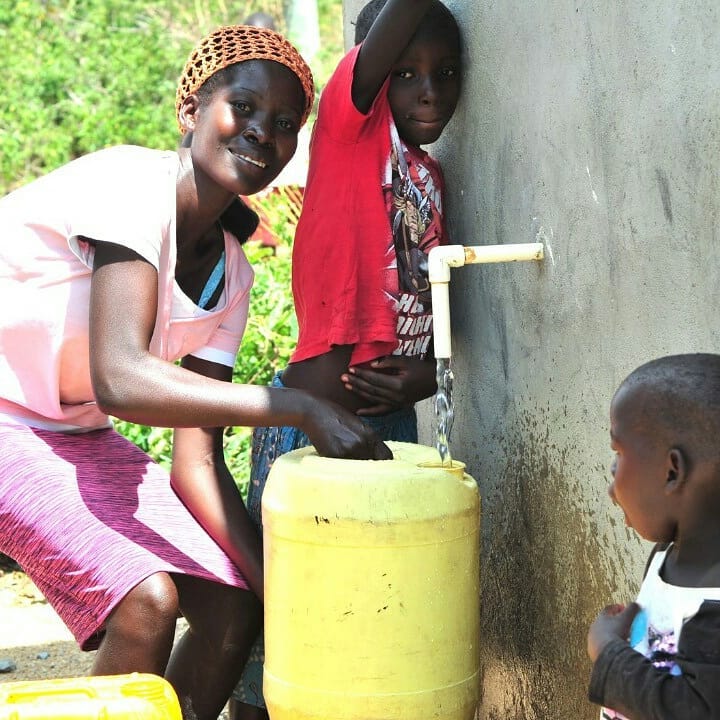Menstruation has been a natural part of human biology for centuries, yet many misconceptions and myths still surround it. These false beliefs not only create a stigma around menstruation but also negatively impact women’s health, dignity, and access to education. If you’ve ever wondered what’s true and what’s not when it comes to menstrual hygiene, you’re not alone.
In this article, we’ll clear the air by debunking some of the most common myths about menstruation and menstrual hygiene. We’ll dive into the facts behind these myths, exploring why they exist and how they affect people. By the end of this post, you’ll be armed with accurate information that can help break the taboos and ensure healthier menstrual hygiene for all.
A Detailed Explanation of Menstrual Hygiene Myths and Facts
Myth 1: Menstruation is a Dirty Process
One of the most persistent myths is that menstruation is dirty or impure. This belief has led to practices that isolate menstruating individuals from normal activities, as seen in some cultures.
Fact: Menstruation is a natural and healthy process where the body sheds the uterine lining. This biological function is essential for reproductive health, and there is nothing dirty or impure about it. Blood is simply blood, composed of tissues and fluids from the uterus, just like other bodily processes.

Myth 2: Women Should Avoid Physical Activity During Their Period
Many believe that women should rest during their period and avoid any physical activity, as exercising can increase cramps or make periods worse.
Fact: Moderate physical exercise can help alleviate menstrual symptoms like cramps and mood swings. Exercise releases endorphins, which act as natural painkillers. While it’s important to listen to your body and avoid strenuous activities if you’re not feeling up to it, light exercise, such as walking or yoga, can actually improve comfort during menstruation.
Myth 3: Women Should Not Wash Their Hair or Bathe During Menstruation
This is a common myth in many cultures, suggesting that women should not wash their hair or bathe during menstruation because it could disrupt their cycle or worsen their health.
Fact: Maintaining proper hygiene, including bathing, is essential during menstruation. Regular baths or showers help prevent infections by keeping the genital area clean. There is no scientific basis for the belief that washing your hair or bathing negatively affects your menstrual cycle. On the contrary, it helps maintain hygiene and promotes comfort.
Myth 4: Using Tampons Can Take Away Virginity
This harmful myth leads many young girls to avoid using tampons, fearing that it could break the hymen and thus take away their virginity.
Fact: Virginity is a social construct rather than a medical term, and the presence of an intact hymen is not an indicator of virginity. Using tampons does not “take away” virginity. The hymen can stretch or tear for many reasons unrelated to sexual activity, including sports, tampon use, or physical activity.
Myth 5: Period Blood Smells Bad
There’s a common misconception that period blood has a foul odor and is inherently different from normal blood.
Fact: Menstrual blood is simply a combination of blood, tissues, and fluids. While it can have a mild odor when exposed to air, it does not naturally smell bad. Maintaining proper hygiene by regularly changing pads, tampons, or menstrual cups prevents any unpleasant odors. Odors are generally caused by bacterial growth on menstrual products rather than the blood itself.

Myth 6: You Cannot Get Pregnant During Your Period
Many people believe that menstruating individuals cannot get pregnant if they have intercourse during their period, which can lead to risky behavior.
Fact: While it’s less likely to get pregnant during menstruation, it’s still possible. Sperm can live in the body for up to five days, and if you ovulate early, pregnancy could occur from intercourse during your period. It’s important to use contraception if you’re not planning to become pregnant.
Myth 7: Only Women Get Periods
The myth that menstruation is exclusively a female experience marginalizes transgender men and non-binary people who also menstruate.
Fact: Menstruation is experienced by anyone with a uterus, regardless of their gender identity. Trans men and non-binary individuals who haven’t undergone surgery or hormone therapy may still menstruate. It’s crucial to be inclusive when discussing menstruation and avoid assuming that only women experience periods.
Myth 8: Menstrual Cups Are Unsafe or Unhygienic
Many people believe that menstrual cups are unsafe or unhygienic compared to traditional pads or tampons.
Fact: Menstrual cups are safe, eco-friendly, and effective when used properly. They’re made from medical-grade silicone or rubber, designed to be worn internally like a tampon, and can be reused for several years with proper cleaning. Studies show that they are just as safe, if not safer, than pads or tampons, and they can hold more blood, reducing the need for frequent changes.
Myth 9: Menstruation Stops in Water
Some believe that when you go swimming or take a bath during your period, the flow stops completely.
Fact: Water pressure may temporarily slow down menstrual flow, but it doesn’t stop it. The flow will resume as soon as you’re out of the water. This is why it’s important to use a tampon, menstrual cup, or period swimwear while swimming to manage your flow effectively.
Myth 10: You Shouldn’t Eat Certain Foods During Your Period
Certain foods, such as dairy or spicy foods, are often avoided during menstruation, with people believing these foods can worsen cramps or flow.
Fact: While some people may find relief from period symptoms by eating or avoiding specific foods, there is no scientific proof that certain foods should be entirely avoided. In fact, consuming a balanced diet rich in vitamins and minerals, including fruits, vegetables, and whole grains, can help alleviate menstrual symptoms.

How Maji Na Ufanisi is Helping
Maji Na Ufanisi (MNU) is committed to advancing menstrual hygiene education and breaking down these harmful myths through their WASH (Water, Sanitation, and Hygiene) initiatives. MNU focuses on raising awareness in communities, particularly in underserved areas, about the importance of menstrual hygiene. The organization provides menstrual hygiene management (MHM) resources, such as sanitary products and educational workshops, to empower young girls and women.
By addressing both physical and social barriers to menstrual hygiene, MNU ensures that individuals can manage their periods with dignity and without stigma. This advocacy is in line with the organization’s broader mission to promote better sanitation and hygiene practices in marginalized communities across Kenya.
Conclusion:
Debunking these myths about menstruation is essential for promoting proper menstrual hygiene and reducing stigma. By educating ourselves and others, we can help create a world where menstruation is understood as a natural process, free from shame and misinformation.
Frequently Asked Questions
- Can physical activity worsen menstrual cramps?
No, moderate exercise can actually help reduce cramps by releasing endorphins, which are natural pain relievers. - Is it true that you shouldn’t swim while on your period?
No, you can swim while on your period. Using tampons or menstrual cups can help manage your flow while swimming. - Can you use tampons if you are a virgin?
Yes, tampons can be used by virgins. The use of tampons does not affect virginity, which is a social concept. - Is it harmful to take a bath or shower during your period?
Not at all. Bathing during your period is essential for maintaining good hygiene and can even provide relief from cramps. - Does menstrual blood have a bad odor?
Menstrual blood itself does not smell bad. Odor can occur if menstrual products are not changed regularly, as bacteria can grow. - Can you get pregnant during your period?
Yes, while it’s less likely, pregnancy can still occur if you have unprotected sex during your period. - Do menstrual cups cause infections?
No, menstrual cups are safe and hygienic when used and cleaned properly. They do not increase the risk of infection. - Can stress affect your period?
Yes, high levels of stress can delay or change the regularity of your period due to hormonal imbalances. - Do periods stop in water?
Menstrual flow might slow down in water due to pressure, but it doesn’t stop completely. - Should I avoid certain foods during my period?
There’s no need to avoid specific foods unless you have personal sensitivities. Eating a balanced diet can help alleviate some menstrual symptoms.



